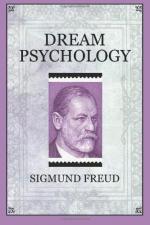A man twenty-seven years old who had been severely ill for a year had had many terrifying dreams between the ages of eleven and thirteen. He thought that a man with an ax was running after him; he wished to run, but felt paralyzed and could not move from the spot. This may be taken as a good example of a very common, and apparently sexually indifferent, anxiety dream. In the analysis the dreamer first thought of a story told him by his uncle, which chronologically was later than the dream, viz. that he was attacked at night by a suspicious-looking individual. This occurrence led him to believe that he himself might have already heard of a similar episode at the time of the dream. In connection with the ax he recalled that during that period of his life he once hurt his hand with an ax while chopping wood. This immediately led to his relations with his younger brother, whom he used to maltreat and knock down. In particular, he recalled an occasion when he struck his brother on the head with his boot until he bled, whereupon his mother remarked: “I fear he will kill him some day.” While he was seemingly thinking of the subject of violence, a reminiscence from his ninth year suddenly occurred to him. His parents came home late and went to bed while he was feigning sleep. He soon heard panting and other noises that appeared strange to him, and he could also make out the position of his parents in bed. His further associations showed that he had established an analogy between this relation between his parents and his own relation toward his younger brother. He subsumed what occurred between his parents under the conception “violence and wrestling,” and thus reached a sadistic conception of the coitus act, as often happens among children. The fact that he often noticed blood on his mother’s bed corroborated his conception.
That the sexual intercourse of adults appears strange to children who observe it, and arouses fear in them, I dare say is a fact of daily experience. I have explained this fear by the fact that sexual excitement is not mastered by their understanding, and is probably also inacceptable to them because their parents are involved in it. For the same son this excitement is converted into fear. At a still earlier period of life sexual emotion directed toward the parent of opposite sex does not meet with repression but finds free expression, as we have seen before.




